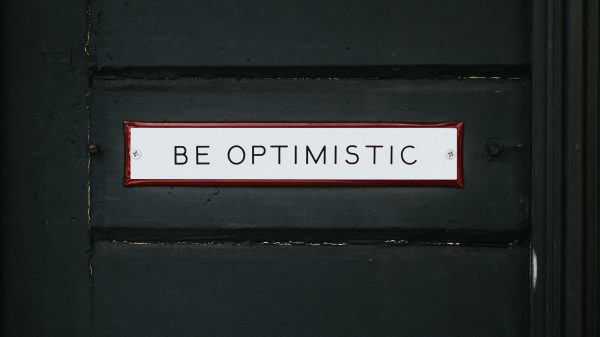In a world where acceptance is often seen as the ultimate validation, rejection is typically cast as its villainous counterpart, leaving bruised egos and shattered dreams in its wake. Yet, what if this much-maligned antagonist holds a secret power, one that can transform adversity into opportunity and setbacks into stepping stones? As we peel back the layers of this complex emotional experience, we delve into the intriguing question: can rejection be more helpful than hurtful? This exploration invites readers to reconsider the sting of dismissal, proposing that beneath its harsh exterior lies the potential for profound personal growth and unexpected pathways to success. Join us as we navigate the intricate dance between hurt and help, uncovering the hidden benefits that rejection may offer to those brave enough to embrace it.
Understanding the Silver Lining of Rejection
At first glance, rejection might seem like a door slamming shut, but it’s often a pivot point, nudging us toward paths we hadn’t considered. Embracing rejection can unveil opportunities for growth and self-improvement. It acts as a mirror, reflecting areas that need refinement and offering a chance to recalibrate. By shifting our perspective, we can transform these experiences into valuable lessons that bolster resilience and creativity.
- Self-Reflection: Rejection encourages introspection, prompting us to evaluate our strengths and weaknesses.
- Redirection: It often serves as a catalyst, steering us toward opportunities more aligned with our true potential.
- Resilience Building: Each rejection faced and overcome fortifies our ability to handle future challenges with grace.
In this light, rejection is not an endpoint but a stepping stone. It’s an integral part of the journey, offering insights that success alone might not reveal. By understanding and embracing its silver lining, we empower ourselves to move forward with renewed clarity and purpose.

The Psychological Impact: Turning Rejection into Growth
Rejection, while often perceived as a setback, can serve as a profound catalyst for personal growth and resilience. It acts as a mirror, reflecting our vulnerabilities and areas in need of improvement, while simultaneously providing an opportunity to refine our self-perception and life goals. When faced with rejection, the emotional sting can be overwhelming, yet it also compels us to step back and reevaluate our aspirations and strategies. This introspection can lead to an enhanced understanding of oneself and foster the development of critical skills such as adaptability, perseverance, and emotional intelligence.
Consider the following ways in which rejection can be transformed into a positive force for personal development:
- Self-Reflection: Use rejection as a moment to analyze what went wrong and what can be improved.
- Resilience Building: Each rejection strengthens your ability to bounce back and try again.
- Clarified Goals: Rejection can sharpen your focus on what truly matters to you, helping to prioritize your efforts.
- Motivation Boost: The challenge of overcoming rejection can reignite your drive to succeed.
By embracing rejection as a stepping stone rather than a stumbling block, individuals can harness its potential to fuel personal and professional advancement.

Embracing Rejection as a Tool for Self-Improvement
Rejection often feels like a personal attack, a moment that can crush confidence and foster self-doubt. However, by shifting our perspective, it can be transformed into a powerful catalyst for self-improvement. Consider it a form of feedback, a way to refine your approach, and an opportunity to grow. When you face rejection, ask yourself:
- What can I learn from this experience?
- Are there skills I need to develop further?
- Is this pushing me towards a better-suited path?
By answering these questions, you can gain valuable insights into areas that need enhancement. Rejection isn’t a barrier; it’s a guidepost. Instead of allowing it to diminish your self-worth, use it as a stepping stone toward resilience and self-awareness. Embracing rejection allows you to align more closely with your true potential and fosters a mindset where growth thrives over stagnation.

Practical Strategies to Transform Rejection into Opportunity
- Reframe Your Mindset: The first step in leveraging rejection is to change how you perceive it. Instead of viewing it as a setback, consider it a stepping stone toward growth. Each rejection is a lesson in disguise, offering valuable insights into what might need improvement. By understanding the underlying reasons, you can adjust your approach and become more resilient.
- Seek Constructive Feedback: Often, feedback accompanying rejection can be the most potent tool for improvement. Reach out to those who turned you down and ask for specific feedback. Not only does this show your willingness to learn, but it also opens the door for future opportunities with them. Use this feedback to fine-tune your skills or product, turning a “no” today into a “yes” tomorrow.
- Diversify Your Approach: Rejection often highlights areas where one might be too narrowly focused. Consider exploring alternative paths or strategies. Whether it’s targeting a different audience, adjusting your message, or enhancing your skill set, diversifying can open up new avenues you hadn’t considered before. Embrace the chance to innovate and explore.
By adopting these strategies, rejection can be transformed from a source of discouragement into a powerful catalyst for personal and professional development. Embrace it, learn from it, and use it as a springboard to seize new opportunities.








